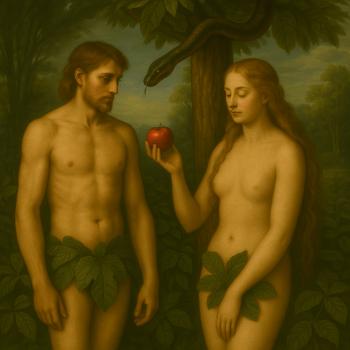Ultimate Reality has many names: Brahman in Hinduism, God in Christianity, the Universe in humanism and the Void in Buddhism. When we encounter people with different beliefs (or no beliefs) we have to consider notions of God that are different from our own.
(Note: In the West, we usually refer to Ultimate Reality as “God,” and I use the word “God” when explaining how others describe “God.” But, this notion is NOT universal, so when I use the word “God,” I do NOT assume that Ultimate Reality is personal or supernatural.)
In a previous post, I said that we know one thing about Ultimate Reality, namely that everyone is related, and everything is connected. The mystics of all traditions, including Christianity, agree. The scientists of many disciplines, especially the quantum physicists, agree.
Many traditions recognize an “absolute” aspect, beyond space and time, and a “relative” aspect, within space and time, to how we perceive Ultimate Reality. (Consider the difference between our holistic, intuitive right brains and our linear, analytical left brains.)
Ultimately, we are woven into the fabric of the Universe. We are actually interconnected, not separated. So, we live one, shared life. But, we are apparently separated. So, we answer to different names, experience individual things and inhabit unique perspectives.

Absolute and Relative
There is an “absolute” aspect beyond space and time. Hindu mystic Ramakrishna says that this is God without name or form. Philosopher Paul Tillich calls it the “God above gods” or the “ground of being,” and Christian mystic Meister Eckhart calls it the “Godhead.”
God as the ground of being is not personal. The late Thich Nhat Hanh, a Buddhist monk, might say that we cannot have a relationship with this God, just like we cannot have a relationship with the sea or the sun. We cannot contain an ineffable God with descriptions.
Hindus say, “Neti, neti,” which means “Not this, not that.” Taoists say, “The Tao that can be told is not the eternal Tao.”
Also, there is a “relative” aspect within space and time. Ramakrishna says that this is God with name and form. Eckhart and Tillich might say that we imagine these relative Gods as a means to encounter the absolute “God above gods” or “the Godhead.”
Gods with name and form are personal. Thich Nhat Hanh would say that you can have a relationship with this God, as some Christians believe they can have a relationship with Jesus. We can attempt to contain God with descriptions, so we can encounter God.
Personal and Impersonal
For many people, including some Western religions, God is personal, and God is omnipotent, omnipresent, and omniscient.
What does it mean to say that God is a person? Is a personal notion of God smaller than an impersonal notion of God? (If God is a person, then God is NOT anything that is NOT that person.) Why does God remain hidden, and why do only some people claim to see God?
Why would a personal God allow bad things to happen to good people? Perhaps God has chosen not to intervene in the world, as deists say. Perhaps God is all-loving, but not all-powerful, as relational theologians say. Do these theories shrink or expand our notions of God?
For many people, including some Eastern religions, God is impersonal.
What does it mean to say that God is impersonal? Does an impersonal God have intention? Does an impersonal God keep track of karma? How are we to relate to an impersonal God? Did Jesus describe God as a person because ancient people only imagined God as a person?
Why would an impersonal God allow “bad” things to happen to “good” people? Perhaps God is present in everyone and everything. If so, then neither people nor things are simply “good” or “bad.” Everyone and everything is sacred (holy God or “wholly” God.)
Brahman, God, the Universe and the Void
Perhaps you have heard some of the following descriptions of mystical (or peak) experiences:
- A Hindu says, “I experienced Brahman (or everything.)”
- A Christian says, “I saw God.”
- A humanist says, “I was one with the Universe.”
- A Buddhist says, “I encountered the Void (or nothingness.)”
Perhaps they are all describing similar deeply-moving, life-changing and profoundly-significant experiences of Ultimate Reality.
If you want to stay up to date on the latest from You Might Be Right, simply subscribe with your email.














